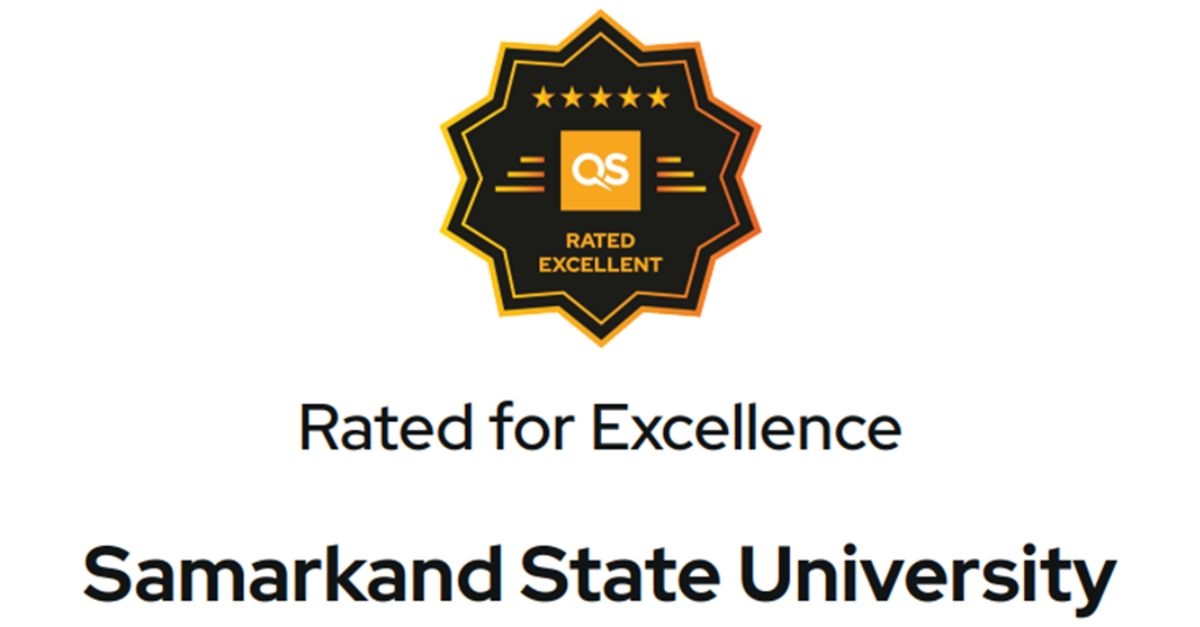Samarkand State University is among the 5-star universities in the QS Stars rating

QS Stars is one of the most influential and reliable rankings for universities in the world, a selection system that evaluates performance indicators in higher education institutions in several areas.
The QS (Quacquarelli Symonds) Stars ranking system was launched by international ranking agency in 2009 to help universities promote their strengths and identify and improve their weaknesses.
According to QS, employers tend to directly hire graduates from 5-star universities. The activities of such institutions are rated as "Excellent" in the QS Stars rating system.
The QS Stars rating system evaluates the activities of universities according to the following indicators:
|
Teaching
|
Quality of education - An indicator of the quality of education is calculated and evaluates the results of surveys conducted among students, the level of education after higher education, and the ratio of students to teachers. |
|
Employability
|
Graduate Employability - Surveys of employers assess graduate employability and the performance of the university's career support center. |
|
Internationalisation |
Internationalization - evaluates the ratio of international students and staff, the number of students coming to and from the university on exchange programs, the number of nationalities in the student body, the number and strength of international partnerships with other universities. |
|
Academic Development
|
Academic Development - This category assesses the university's academic development opportunities for its students and faculty outside of teaching and learning. This includes indicators such as assistantships for students, the availability of extracurricular activities, and the number of teachers participating in development programs. |
|
Facilities
|
Facilities - This category assesses the university's infrastructure, which gives students an idea of the environment they can expect from their university. These include facilities such as sports facilities, student accommodation and a library. |
|
Programme Strength
|
Selected field of study - This category considers the level of excellence of a specific field of study chosen by the university. Accordingly, the degree of competitiveness and respectability of the chosen field, leading professors, promising students, as well as the role of the field in education and industry are evaluated. |
|
Social Responsibility
|
Social responsibility - This indicator evaluates the level of the university's contribution to social interests, by examining its role in ensuring social equality and wide-ranging relations with the public. These include factors such as an institution's social impact, outreach, philanthropic investments, and human capital development. Also, within this indicator, the institution's contribution to reducing inequalities between the population and its impact on the health and well-being of the population are also taken into account. |
|
Inclusiveness
|
Inclusion - This category considers disability support services, gender equality among students and staff, and the existence of a strategic framework to ensure this. |
The university achieved the highest results in the categories of education, graduate employability, internationalization, academic development, facilities, chosen field of study (physics), social responsibility and received 5 stars.
The university's QS 5-star rating is valid until February 2028.

